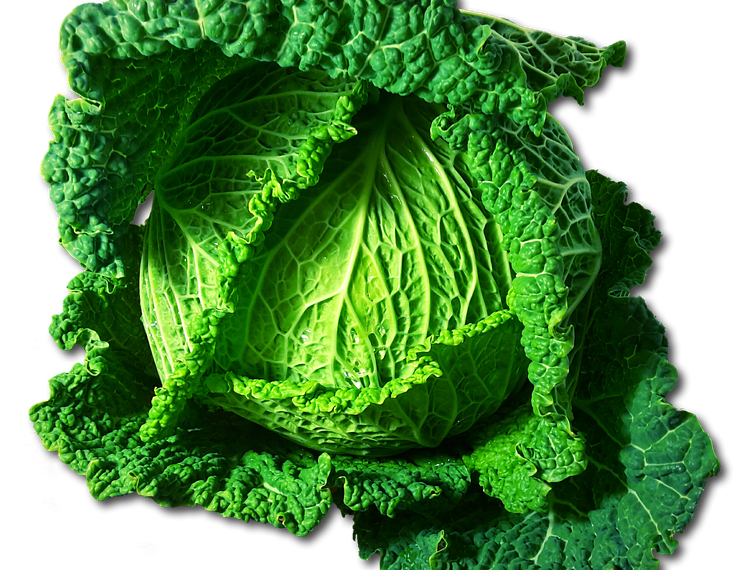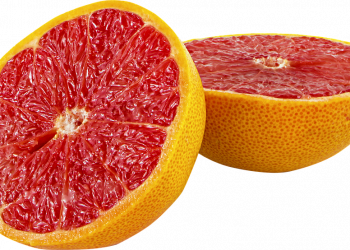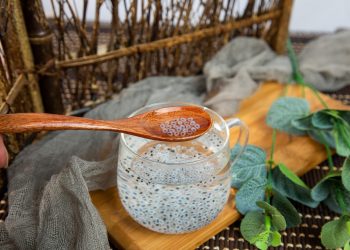Midday cravings often lead us to quick snacks that promise energy but can leave us feeling sluggish later. Imagine instead reaching for a vibrant, crunchy piece of cabbage. When it comes to hormone balance, cabbage might not be the first vegetable that springs to mind, yet it holds considerable potential. Let’s explore five distinct benefits of cabbage in promoting hormonal health.
Contents
1. Cruciferous Compounds and Hormone Regulation
Cabbage belongs to the cruciferous family, which includes broccoli, kale, and Brussels sprouts. These vegetables are rich in glucosinolates, compounds that can help in hormone metabolism. When you consume cabbage, these glucosinolates get converted into bioactive compounds during digestion, aiding the body’s ability to balance hormones such as estrogen.
A study published in the Journal of Nutrition in 2018 revealed that the active compounds found in cruciferous vegetables could aid in regulating estrogen levels, thus potentially reducing the risk of hormone-related diseases, including certain types of cancer (Chun et al., 2018). Modulating estrogen levels is crucial, especially for individuals who may experience hormonal fluctuations.
However, consuming cabbage in excessive amounts can lead to hypothyroidism in some individuals, particularly if they have an existing thyroid condition. Moderation is key—enjoying cabbage as part of a varied diet can optimize its beneficial effects without risking hormone imbalance.
2. Anti-Inflammatory Properties
Chronic inflammation can disrupt hormonal balance, impacting everything from stress hormones to reproductive health. Cabbage is high in anti-inflammatory compounds, such as vitamin C and various phytonutrients. When included in your diet, these compounds can contribute to reducing inflammation in the body, thereby supporting better hormonal health.
A 2020 article in the European Journal of Nutrition noted that the antioxidants in cabbage not only fight oxidative stress but also promote better regulation of inflammation in the body (Vasylieva et al., 2020). This is particularly important for women going through menopause, where inflammation can exacerbate symptoms like hot flashes and mood swings.
It’s worth mentioning that while cabbage can be beneficial, individual responses to diet can vary. It’s wise to consider how your body reacts, especially if you have gastrointestinal sensitivities.
3. Digestive Health and Estrogen Detoxification
The health of your digestive system plays a substantial role in hormonal balance. Cabbage is a great source of dietary fiber, which aids in digestion and promotes a healthy gut microbiome. A well-functioning digestive system is crucial for the detoxification of excess hormones, particularly estrogen.
In 2019, research published in Frontiers in Endocrinology highlighted the connection between gut health and estrogen levels, emphasizing that a healthy gut flora can help in the effective metabolism and excretion of hormones (Bäuerl et al., 2019). Cabbage supports this by providing soluble and insoluble fibers, which ensure efficient digestion and prevention of hormone reabsorption.
Moreover, ensuring adequate hydration and varied fiber intake can further enhance these effects, helping in the detoxification process.
4. Mood Enhancement Through Nutrient Density
Hormone fluctuations can often affect mood, leading to anxiety or depression. Cabbage is rich in vitamins such as B6 and folate, both of which have been shown to play a role in mood regulation. Consuming foods that support neurotransmitter balance is essential for emotional stability.
A study from 2020 published in the Nutrients journal indicated that B vitamins, including those found in cabbage, are crucial for maintaining optimal function of neurotransmitters such as serotonin (Dumont et al., 2020). This is particularly important during phases of hormonal change, such as PMS or menopause, where mood stabilization is often needed.
Incorporating cabbage into your meals, whether in salads, stir-fries, or fermented dishes like kimchi, can provide these essential nutrients without overwhelming your diet. Always pay attention to how food affects your mental state, making adjustments as necessary.
5. Supporting Blood Sugar Control
Blood sugar stability is vital for maintaining hormone balance. Insulin sensitivity is often linked to weight gain and hormonal imbalances. Cabbage, being low in calories and high in fiber, can help regulate blood sugar levels by promoting satiety and reducing insulin spikes after meals.
A 2021 study in the Journal of Food Science found that higher fiber intake from vegetables like cabbage is associated with better postprandial blood glucose levels (Bahadoran et al., 2021). By incorporating cabbage, you may not only help manage your blood sugar but also support overall hormonal health through more stable energy levels.
Nonetheless, it’s essential to remember that blood sugar management involves a holistic approach. Pairing cabbage with proteins and healthy fats will yield the best effects in stabilizing energy levels.
Conclusion
Cabbage may seem unassuming, but its health benefits, especially regarding hormonal balance, are worthy of consideration. From regulating estrogen levels to supporting digestive health, this cruciferous vegetable contributes in various significant ways.
As you strive for hormonal balance, consider how cabbage can fit into your meals. Whether through refreshing salads, sauerkraut, or hearty soups, embracing it can foster not just physical well-being but also emotional health. Listening to your body and understanding what works for you is equally essential—after all, each journey toward balance is uniquely personal.
FAQs
Q: How often should I eat cabbage for hormone balance?
A: Including cabbage in your diet a few times a week can be beneficial. However, be attentive to how your body responds, especially if you have any digestive issues.
Q: Can cabbage help with menstrual symptoms?
A: Cabbage’s anti-inflammatory properties and vitamins may help alleviate some menstrual symptoms, though individual experiences may vary.
Q: Is cooked cabbage better than raw for hormone balance?
A: Both forms offer unique benefits. Cooking can enhance certain nutrients and make cabbage easier to digest, while raw cabbage is high in enzymes and vitamin C.
Q: Are there any downsides to eating too much cabbage?
A: Yes, excessive consumption may lead to gastrointestinal discomfort and potentially interfere with thyroid function in sensitive individuals. Moderation is essential.
References
- Chun, O. K., et al. (2018). The role of cruciferous vegetable consumption in regulation of estrogen metabolism. Journal of Nutrition. URL: https://www.ncbi.nlm.nih.gov/pmc/articles/PMC6019335/
- Vasylieva, I., et al. (2020). Nutritive and health promoting properties of cabbage: A review. European Journal of Nutrition. URL: https://www.ncbi.nlm.nih.gov/pmc/articles/PMC7409839/
- Bäuerl, C., et al. (2019). Gut microbiota and hormonal balance: A complex interplay. Frontiers in Endocrinology. URL: https://www.frontiersin.org/articles/10.3389/fendo.2019.00351/full
- Dumont, M., et al. (2020). Role of B vitamins in mood enhancement: A review. Nutrients. URL: https://www.ncbi.nlm.nih.gov/pmc/articles/PMC7465077/
- Bahadoran, Z., et al. (2021). The impact of fiber on postprandial glucose and insulin response in humans. Journal of Food Science. URL: https://www.ncbi.nlm.nih.gov/pmc/articles/PMC7958578/
Get Your FREE Natural Health Guide!
Subscribe now and receive our exclusive ebook packed with natural health tips, practical wellness advice, and easy lifestyle changes — delivered straight to your inbox.














